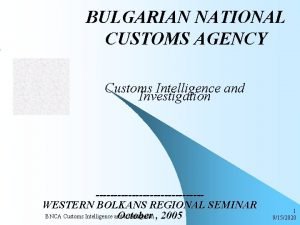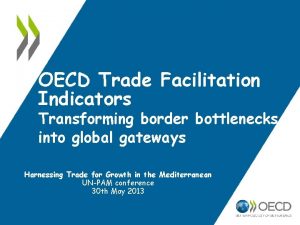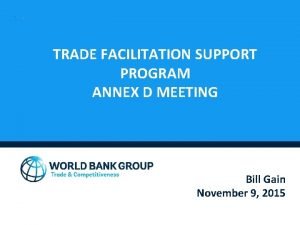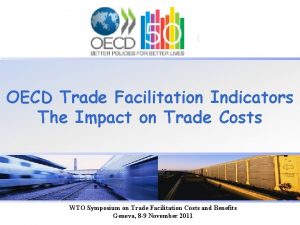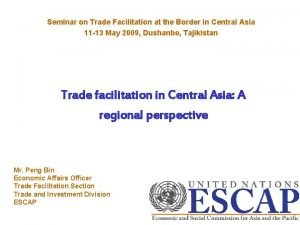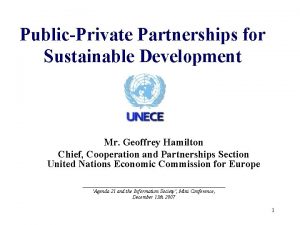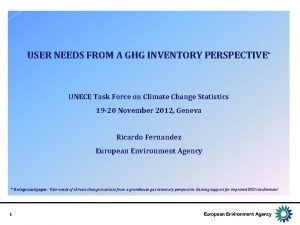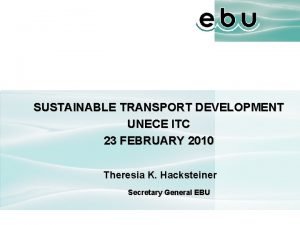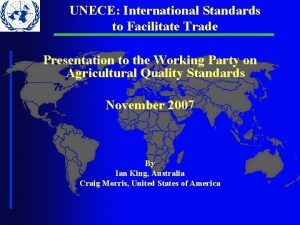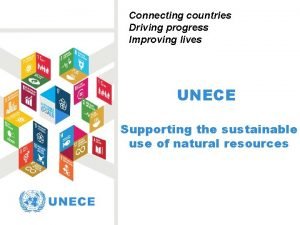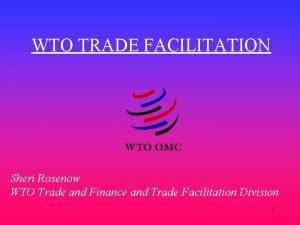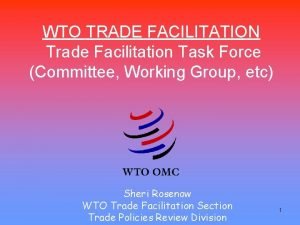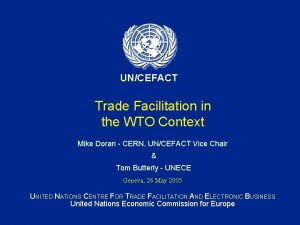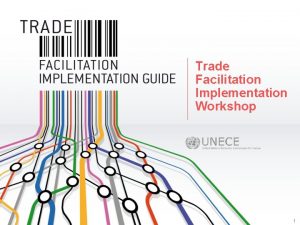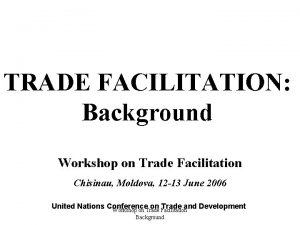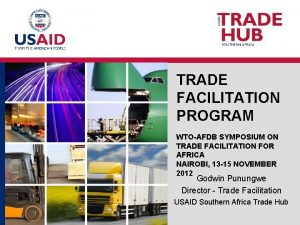Trade Facilitation in the WTO Context UNECE Policy












- Slides: 12

Trade Facilitation in the WTO Context UNECE Policy Segment, 26 May 2005 Presentation by H. E. Mr. Don STEPHENSON

Why Trade Facilitation? Trade Facilitation is an area where the prospects for a win-win outcome are significant… • • For traders: • • • Enhanced transparency and predictability Streamlined customs procedures Reduced cost of transaction For implementing governments and countries: • • • Increased trade and FDI flows Enhanced competitiveness Greater efficiency in collection of government revenue 2

Why negotiate at the WTO? • • Trade facilitation is key to the enhancement of trade in goods WTO rules on trade facilitation will build on existing GATT disciplines and complement efforts of other TF actors: - Organisations with a regulatory function (WCO, UN - CEFACT) Providers of technical assistance / capacity building (World Bank, national development assistance agencies) Regional / multilateral discussion fora (UN Regional Economic Commissions, UNCTAD, APEC, OECD) 3

Elements of the Negotiations: July 2004 Mandate and Modalities • Clarify and improve current GATT Articles dealing with: • Publication and Administration of Trade Regulations • Fees and Formalities • Freedom of Transit • Enhance technical assistance and support for capacity building in trade facilitation • Take fully into account the principle of special and differential treatment for developing and leastdeveloped countries, as well as their implementation capacities. 4

Examples of proposed measures Publication and administration of trade regulations - Established means of publication (e. g. internet) Advance rulings Prior consultation on proposed measures Review and appeal procedures / due process Separation of release and clearance processes 5

Examples of proposed measures Fees and Formalities - Objective criteria for fees / periodic review Simplification and reduction of documentation Improved coordination among border agencies Simplified procedures for certain goods / traders Risk assessment 6

Examples of proposed measures Freedom of Transit - Non-discrimination between modes of transportation, origin/destination, carriers, etc. - Special procedures for transit (e. g. , bonded transport regimes, simplified border formalities) - Rules on level/nature of required guarantees (e. g. , disproportionate guarantees) 7

Special and Differential Treatment for Developing Countries • • Key Question: how to address developing countries’ interests, needs and concerns? Each country to identify its needs and priorities In the Negotiating Group: • • • Examine current level of implementation of proposed measures Explore possible means to build in special and differential treatment in potential commitments Enhance existing and undertake new efforts on technical assistance and capacity building 8

Benefits and Opportunities of TF Rules for Developing Countries • • Integral to Governance Opportunity to address special challenges of land-locked developing countries – transit issues More cost-effective border operations Enhanced export competitiveness 9

What about implementation costs? • In the short term, some costs will have to be borne… • … but these can be recovered in the medium-term: • • savings in administrative costs • More revenues from tariff, and fees and charges due to increased number of transactions The cost of not implementing TF measures should not be underestimated 10

Status of Negotiations • Thirty-nine communications from Members have been submitted to date - • • • Most include concrete proposals on how to clarify and improve existing GATT rules In-depth discussion on proposals continues The goal is to prepare a solid foundation for the next phase of negotiations: elaboration of specific commitments Next milestone: Hong Kong Ministerial 11

12
